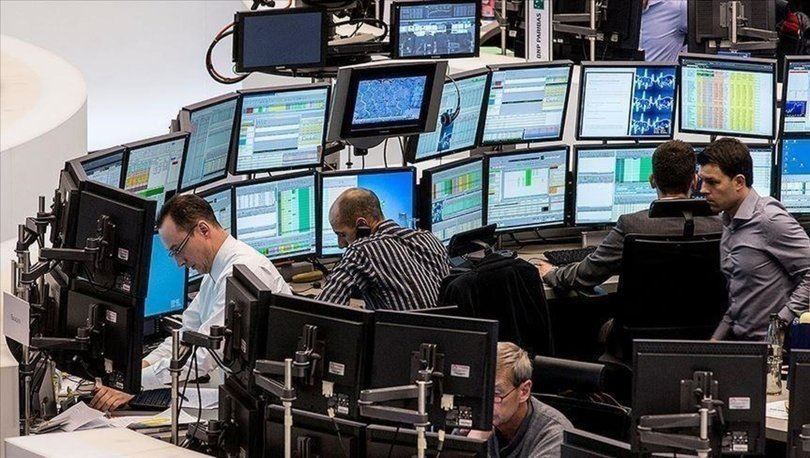While the developments pointing to the persistence of inflationary pressures around the world are still present, the data announced on the macroeconomic side strengthens the recession expectations, increasing the uncertainties.
The actions to be taken by the central banks between the inflation and recession dilemma continue to be the main factor shaping the pricing. While the statements made by the authorities in recent weeks increase the possibility that both the US Federal Reserve (Fed) and the European Central Bank (ECB) will raise interest rates by 75 basis points at their meetings this month, this situation causes the demand for the dollar to remain alive.
With these developments, the dollar index reached the limit of 110 yesterday, testing the highest level since June 2002, while the 10-year bond yield of the USA reached the peak of 10 weeks with 3.30 percent, with the increase in the outflows from the bond market. While there was a sharp decline in the commodity side due to recession concerns, the price of silver fell to the lowest level in about 2 years, and the price of copper and zinc in a month. The barrel price of Brent oil, on the other hand, was stabilized at $ 93.7 today, after declining 11 percent in three trading days and falling to $ 91.6.
On the equity markets side, it is noteworthy that the new day started with a mixed course, and non-farm employment, unemployment and average hourly earnings data in the US employment report are expected to be decisive in terms of pricing. Market expectations point to a slowdown in non-farm employment growth, with the unemployment rate holding steady at 3.5 percent, giving a mixed signal.
According to the data released yesterday, weekly jobless claims in the USA fell to the lowest level in 9 weeks with 232 thousand last week. In the US, the Institute for Supply Management (ISM) manufacturing index also remained at the lowest level since June 2020 with 52.8 in August.
On the other hand, yesterday, the news that the US administration ordered chip manufacturers Nvidia and AMD to stop the sale of advanced chips used in artificial intelligence studies to China and Russia, suppressed the technology shares traded in the New York stock exchange. After the news, Nvidia's shares, which have a significant sales volume to China and Russia, lost more than 7 percent, while AMD's shares lost nearly 3 percent. With these developments, the Nasdaq index fell by 0.26 percent, while the Dow Jones index gained 0.46 percent and the S&P 500 index gained 0.30 percent.
The Manufacturing Industry Purchasing Managers Index (PMI), announced yesterday in Europe, pointed out that the economic slowdown in the region has deepened. The said data fell to the lowest level of the last 2 years in the Eurozone with 49.6, and in Germany with 49.1, the lowest level in 26 months. While the developments regarding the energy crisis are being followed closely, Russia has stated that it will not sell oil to countries that apply ceiling prices. With these developments, the DAX 40 index in Germany decreased by 1.60 percent and the FTSE 100 index in the UK decreased by 1.86 percent, while the CAC 40 index in France remained flat.
On the Asian side, the shift in the number of new types of coronavirus (Kovid-19) cases in China from coastal areas to production centers that are important for the economy increases the concerns. The tightening of measures in Shenzhen and the quarantine of Chengdu province, as part of the zero-case policy in the country, signal that the country's economy, which is already showing signs of slowdown, will move further away from its growth targets.
In Japan, on the other hand, following the historic peak of the dollar/yen parity with 140.4, the direction of the monetary policies implemented contrary to the rest of the world, and the messages of the economic officials in the face of the weakening yen are occupied by the agenda.
With these developments, it was observed that the new day started with sellers, albeit limited, in Asian stock markets, while the Nikkei 225 index in Japan decreased by 0.2 percent and the Shanghai composite index in China depreciated by 0.1 percent close to the closing.
Due to the low risk appetite in the domestic market yesterday, a selling trend was also observed in Borsa Istanbul, and the BIST 100 index closed the day at 3,142.74 points with a 0.90 percent depreciation. Dollar/TL, on the other hand, closed at 18.2048 with an increase of 0.1 percent yesterday, and is traded at 18.2170 at the opening of the interbank market today.
Analysts said that the expectations that the aggressive policy steps to be taken by the central banks due to inflationary concerns may push the already slowing economies into recession, causing the risk appetite in the markets to remain low.
Analysts said that non-farm employment and factory orders in the USA and the Producer Price Index (PPI) in the Euro Zone are on the agenda of today's data, and that the level of 3,200 is technically a resistance in the BIST 100 index and a support of 3,050 points.
The data to be followed in the markets today are as follows:
12.00 Eurozone, July PPI
14.30 Turkey, weekly money and bank statistics
14.30 Turkey, FX position of non-financial firms in June
15.30 US, August non-farm employment and unemployment rate
17.00 US durable goods orders for July











Comments
No comment yet.